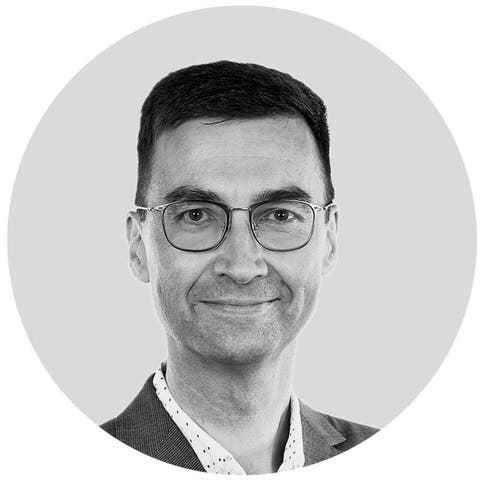The killing of a girl, presumably by an asylum seeker from Eritrea, triggers horror. It must not stop there. The “traffic light” must prove that the safety of the locals has priority – before the interests of asylum seekers from all over the world.
Flowers and candles commemorate the 14-year-old girl who was killed.

Alexander Kissler is the political editor of the NZZ in Germany.
You are reading an excerpt from the weekday newsletter “The Other View”, today by Alexander Kissler, editor in the Berlin office of the NZZ. Subscribe to the newsletter for free. Not resident in Germany? Benefit here.
The Baden-Württemberg town of Illerkirchberg near Ulm became sadly famous this Monday. A 14-year-old girl, an Alevi, was killed there in the morning hours and another seriously injured. An asylum seeker from Eritrea is an urgent suspect. He was arrested at the municipal refugee shelter.
The day after, horror and sadness, dismay and outrage prevail. These reactions are humanly understandable. Politicians should not, however, shirk an uncomfortable insight: migration also has its downsides, and the local population needs at least as much protection as those seeking protection from all over the world, whom Germany is so happy to welcome.
Illerkirchberg is neither an isolated case nor may the act of violence be misused for xenophobic resentment. The entire migration debate has two sides, and both sides are part of a realistic inventory, which is unfortunately denied by the ruling “traffic light”.
The government has a one-sided view
In the ranks of the SPD, the Greens and often also the FDP, a romantic view of all “people who wander this planet” dominates. This is how a social democratic migration expert put it. Migration movements are primarily seen from the perspective of the newcomers and almost exclusively as an enrichment for the host society.
The coalition agreement states: “We are united by the understanding of Germany as a diverse immigration society.” Asylum and protection seekers should be integrated more quickly. The agreed “opportunity right of residence” and the planned accelerated naturalization are based on this programmatic line.
When an Eritrean is accused of homicide in Illerkirchberg or a Somali in Ludwigshafen, when an Eritrean pushes a child and its mother in front of the train in Frankfurt am Main, or when an Afghan stabs a girl in Kandel, warnings against prejudice are more readily available than realism and self-criticism. Yes, there is aggressive xenophobia, and it is always reprehensible. Yes, there is brutal violence by migrants, and that too is always reprehensible. The latter, however, seeps away quickly and strategically in the pathos of dismay in the political retrospective.
Konstantin Kuhle from the FDP makes Illerkirchberg’s act “stunned, angry and sad”. The green Baden-Württemberg Finance Minister Danyal Bayaz announced that he was “deeply shocked”. Governing politicians should, however, have another set of instruments at their disposal than the subjective state of mind. They should know that when in doubt, the protection of their own population takes precedence and act accordingly.
The Social Democratic Federal Interior Minister Nancy Faeser speaks of “terrible news” without losing a word about the background to the crime. If she did, she would have to admit that she could not keep her promise from the Bundestag: “Providing security is the central priority of this federal government in these difficult times.”
In this way, the state gradually loses its legitimacy
Anyone who considers migration only from an economic or humanitarian point of view fails to recognize its importance for internal security. The federal situation report “Crime in the context of immigration” from 2021 shows that in the case of “crimes against life”, the proportion of suspected immigrants is 12.8 percent. The proportion of rapes and sexual assaults is similarly high. Police crime statistics define immigrants as asylum seekers, those entitled to protection and asylum, and quota refugees, each with a toleration status or illegal residence. They make up about two percent of the total population.
This does not in any way mean that there is a duty to isolate the country – but it does mean that in future it is necessary to take a closer look at who is allowed into the country, who is rejected and who is quickly expelled again. In the medium term, it will be unavoidable to debate whether the asylum law in its present form is able to meet the challenges of the 21st century. The Federal Republic was not founded as a working group to alleviate the suffering of this world.
From all of this it follows that it is not the one who exploits the terrible deeds of Illerkirchberg, Ludwigshafen or Kandel who calls them a challenge for the protection of the local population, but the one who does not want to talk about them. When politics closes its eyes to real dangers, it becomes dangerous itself. And a state that breaks its promise of security gradually loses its legitimacy.
